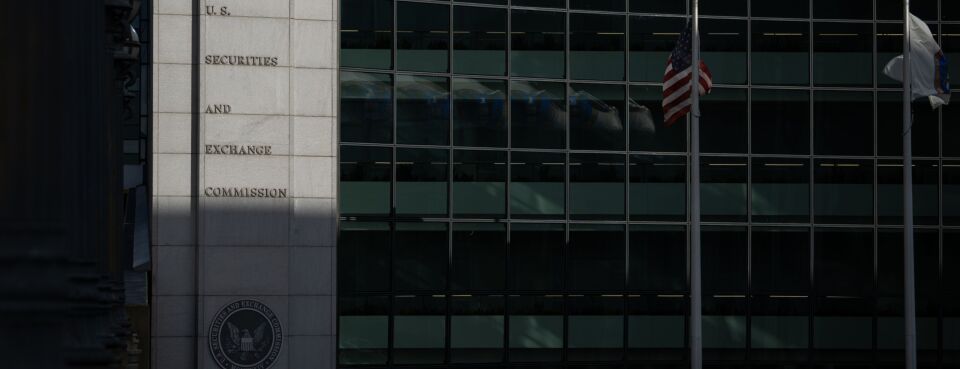By Matthew Bultman
The SEC has set sights on its next crypto enforcement target—”governance token.”
The agency’s Jan. 20 lawsuit accuses a trader of violating federal securities laws by manipulating the price of Mango Markets’ governance token, MNGO. Such tokens, which have become increasingly popular, give the holder the right to vote on changes to a blockchain organization that issued the token.
The case illustrates that governance tokens aren’t immune from the agency’s aggressive efforts to regulate crypto markets. It could also serve as a reference for other crypto projects on how to structure their governance models.
“This is the most amount of ink that has been spilled around governance and applying the SEC’s views about governance to a specific set of facts,” Willkie Farr & Gallagher LLP partner Justin Browder said.
The Securities and Exchange Commission alleged the MNGO token is a security. But what cryptocurrency is a security that would be under the SEC’s enforcement jurisdiction is a heated, ongoing legal discussion.
The complaint makes clear the agency’s view that governance rights don’t carry much weight in its analysis if token holders aren’t actually engaged in the group’s operations.
The SEC is indicating that “just because you call a governance token a governance token does not mean that it’s not a security,” Nelson Mullins Riley & Scarborough LLP partner Arina Shulga said.
The case also illustrates how crypto can get entangled in the web of federal oversight. The SEC’s complaint came less than two weeks after the defendant, Avraham Eisenberg, was sued by another regulator, the Commodity Futures Trading Commission (CFTC), over the same scheme.
Eisenberg allegedly used two Mango Markets accounts to artificially inflate the price of Mango perpetual swaps, which are a type of futures contract, and prop up the price of MNGO tokens.
He used the swaps to borrow, and then withdraw, $116 million worth of crypto assets from Mango Markets, a crypto trading platform that is run by Mango DAO, the SEC said. A DAO is a “decentralized autonomous organization,” which runs on blockchain technology and is designed to have no central governing body.
Eisenberg later negotiated a deal to return about $57 million worth of assets to the Mango DAO, according to the SEC. Eisenberg couldn’t be reached for comment.
To determine whether a digital asset is a security, regulators use the Howey Test, which dates from a 1946 Supreme Court ruling. The test considers whether there was an investment of money in a common enterprise with an expectation of profits derived from the efforts of others.
The last part—derived from the efforts of others—is typically a focus in crypto cases.
Crypto firms often argue their tokens are decentralized, and not dependent on central leadership decision-making “efforts.” A view among some token issuers is that attaching governance rights to tokens—and giving people a say in how a project is run—makes that argument stronger.
But the SEC argued that governance rights in MNGO tokens, which were issued to thousands of people around the world, are illusory.
Mango token holders have to send in “executable code” to suggest a governance proposal, and not all holders likely had the technical skill to do so, the SEC said. Votes were also dominated by the creators of Mango Markets, the agency said.
That means, in the SEC’s view, people who held MNGO tokens were relying on “others”—namely, Mango’s creators—to drive value.
The SEC is suggesting that “if you design a governance system that doesn’t facilitate widespread governance—actual widespread governance by lots of different token holders—it’s sort of useless in the sense of defeating the Howey analysis,” said Browder, who co-leads Willkie’s digital works practice.
In alleging that MNGO token holders expected profits from the efforts of others, the SEC also said people could earn the tokens as a reward for making contributions to liquidity pools on the Mango Markets platform. MNGO token holders could also earn interest on their tokens, the SEC said.
The lawsuit comes amid ongoing consideration in Congress as to which of the top market regulators, the SEC or the CFTC, should take the lead on crypto oversight.
SEC chair Gary Gensler has already said he thinks most digital assets are securities that fall under his agency’s jurisdiction. But some inside the crypto industry are pushing to give the CFTC, which regulates derivatives markets, more power to regulate crypto assets. Rules around commodities and their financial derivatives are seen as less onerous.
“Both are clearly interested in regulating crypto,” Ballard Spahr LLP attorney Tyler Cobb said.
The CFTC’s complaint accused Eisenberg of manipulating the price of swaps contracts offered by Mango Markets. The US attorney in Manhattan has also charged the 27-year old trader with commodities fraud and manipulation.
While alleging violations of different laws, the CFTC and SEC complaints don’t directly contradict one another.
The SEC is focused on manipulation of the MNGO token. The CFTC’s attention was on the swap relationship.
The CFTC alleged USDC, a stablecoin whose value is pegged to the US dollar, and certain other digital assets involved in Eisenberg’s scheme are commodities. The CFTC complaint doesn’t take an explicit position on whether MNGO is a security or commodity. But the agency might have to take a position on it before the case is over.
“We might wind up in a situation where we have the same fact pattern, two agencies reaching for jurisdiction, and one agency may win over the other for jurisdiction,” Willkie Farr partner and former CFTC attorney Neal Kumar said.
The case “certainly highlights the need for greater clarity in what is and isn’t a security,” Kumar said.
To contact the reporter on this story: Matthew Bultman in New York at [email protected]
To contact the editors responsible for this story: Melissa B. Robinson at [email protected]; Roger Yu at [email protected]
To read more articles log in.
Learn more about a Bloomberg Law subscription.
Author
Administraroot


